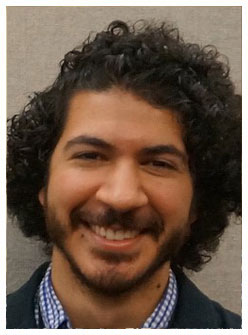Authors: Mike Rifino & Kushya Sugarman


The 2020-2021 academic year illuminated that we, as educators, cannot separate our pedagogy from the systemic inequities imbricating students' lives. Classrooms, most of which are back in-person, remained spaces characterised by loneliness, rage, grief, anxiety, and fear amid a global pandemic, white supremacy, and a catastrophic ecological crisis.
This context provided the impetus for writing 'Loneliness through the lens of Black feminist love-politics.' We wanted to contribute to the loneliness literature, but through the often neglected Black feminist perspectives and in the context of community college.
In what follows, we reflect on our collective positionality and offer updated pedagogical recommendations.
Writing loneliness in the community
As graduate students, we consider our publication one of the many fruits of having a graduate advisor, Dr Anna Stetsenko, who foregrounds community building in their mentoring (see Calderaro, et al., 2020). We met in 2019 at an informal meeting organised by our collective. These have been essential for surviving graduate school, as they provide a radical departure from academic spaces that centre on whiteness, heteropatriarchy, and political neutrality.
In the 2021 summer, we began to meet weekly to read texts about the racialisation of emotions in education and to discuss challenges with remote learning. When our advisor notified the collective about an opportunity to write about the educational legacies of the pandemic, we decided to merge our shared academic interests and concerns about teaching. Specifically, Kushya drew on Black feminist traditions, and Mike contributed community college scholarship to examine student loneliness amid the pandemic.
Addressing the psychologised discussions about loneliness
While media and scholarly discussions agree that the COVID-19 pandemic has worsened intersecting gender and racial disparities, discourses around loneliness are typically limited to psychological experiences without a clear structural analysis (Taylor, 2020). We wanted to address this discrepancy in a way that asserts loneliness as a psychological experience that stems from inequalities that disproportionately target communities of marginalised identities.
We examine these dynamics for students in urban community colleges, as these institutions enroll the majority of U.S. undergraduates, the majority of which are students of colour. Our main goals for the paper were a) disrupt psychologised discourses, b) foreground Black feminist traditions, and c) support faculty and staff, especially in community college, in addressing loneliness.
Envisioning the educational legacies of the pandemic
Drawing on Black Feminist perspectives and a sociopolitical conceptualisation of loneliness, we conceptualised pedagogical practices that, in our experiences, foster belongingness amid online learning.
Below, we offer recommendations updated since returning to in-person learning.
Building collaboration through open educational resources
OER invites conversations about the power and politics of college learning. For instance, unlike textbooks, OERs are pedagogical materials that operate on a zero-cost policy and can be reused by its users. Thus, learning is rendered more accessible as these resources are free. Since its content can be modified, OER illuminates knowledge production as a collaborative activity.
Transforming traditional learning assessments through low-stakes assignments
One of the challenges of remote instruction was how to assess learning. In our paper, we explored holistic assessment practices that foster belongingness, creativity, and mutual respect. We now include low-stakes assignments that scaffold students’ learning. For instance, assignments such as reflection writing, peer editing, and exit tickets, allow students to develop meta-cognition. Such scaffolding reduces the workload for students and faculty, encourages reflection, and allows for community.
Implementing hybrid learning
We cannot deny that there are students who have greatly benefited from digital learning amid the pandemic (McKinney de Royston & Vossoughi, 2020). If possible, we suggest classrooms to embrace a hybrid learning model where faculty and students meet in person and online throughout the semester. This fosters community and flexibility that many community college students need to be successful.
Although opting for a hybrid classroom is not always the choice of faculty and staff, we do suggest that faculty offer an online option for some of their interactions with students (e.g., office hours).
Conclusion
The pandemic highlighted that education is not just a rational practice, but an emotional and embodied process conducted in community.
As we reflect on the educational legacies of the pandemic, teaching for liberation, therefore, must attend to emotions, as well as the sociopolitical structures with which these emotions relationally build.
References
Calderaro, B., Das, A., Entigar, E. K., Sales, F., L., L., A. (2020). Playing with conscientização: A collectividual project for a world we wish to see. Cultural Praxis.
Mckinney de Royston, M. & Vossoughi, S. (2020). Fixating on pandemic ‘learning loss’ undermines the need to transform education. Truthout.
Taylor, K. Y. (2020). The black plague. The New Yorker

Quality education for all
We believe in quality education for everyone, everywhere and by highlighting the issue and working with experts in the field, we can start to find ways we can all be part of the solution.
